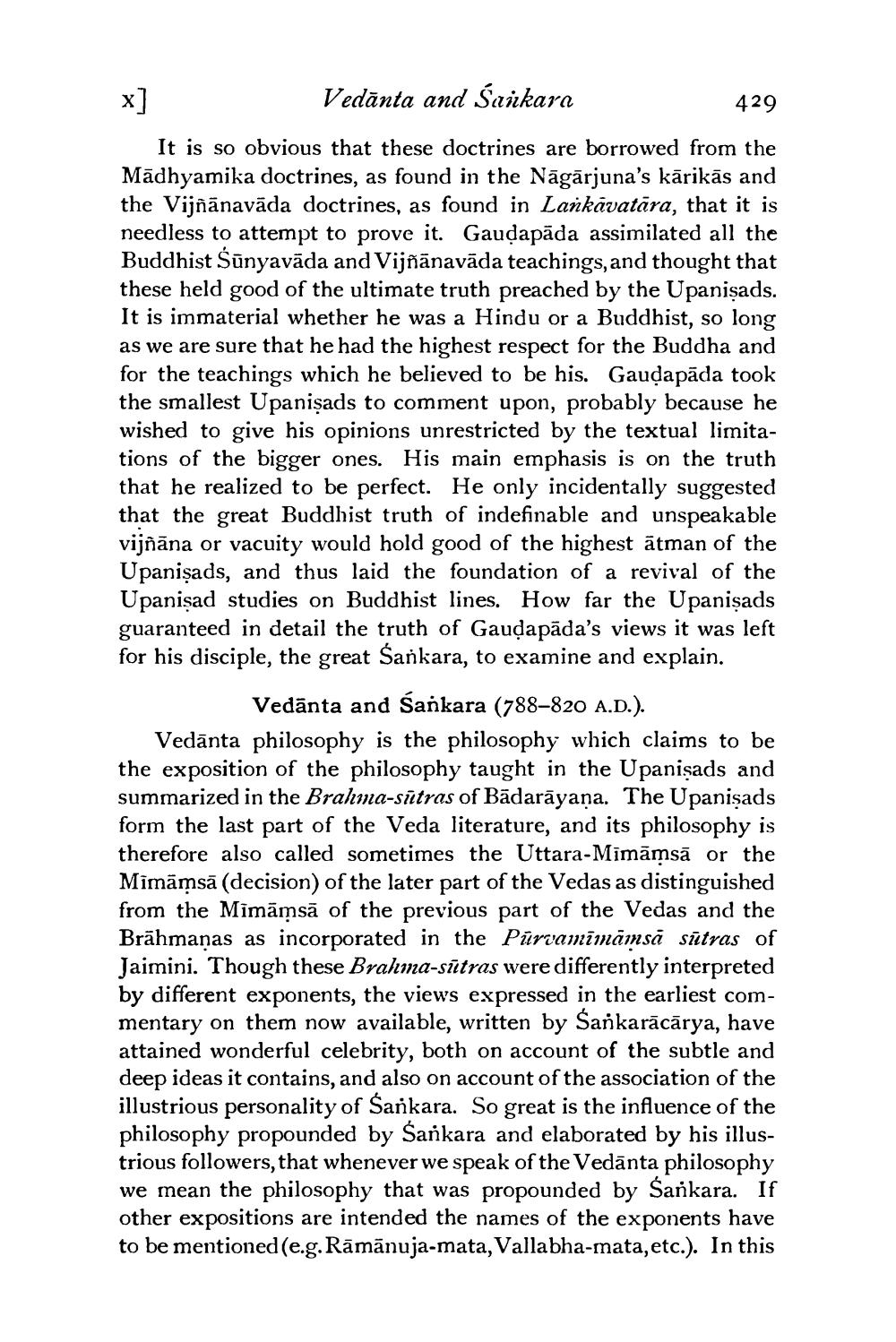________________
x]
Vedanta and Sankara
429
It is so obvious that these doctrines are borrowed from the Madhyamika doctrines, as found in the Nagarjuna's kārikās and the Vijñānavāda doctrines, as found in Lankavatāra, that it is needless to attempt to prove it. Gauḍapāda assimilated all the Buddhist Sunyavāda and Vijñānavāda teachings, and thought that these held good of the ultimate truth preached by the Upanisads. It is immaterial whether he was a Hindu or a Buddhist, so long as we are sure that he had the highest respect for the Buddha and for the teachings which he believed to be his. Gauḍapāda took the smallest Upanisads to comment upon, probably because he wished to give his opinions unrestricted by the textual limitations of the bigger ones. His main emphasis is on the truth that he realized to be perfect. He only incidentally suggested that the great Buddhist truth of indefinable and unspeakable vijñāna or vacuity would hold good of the highest ätman of the Upanisads, and thus laid the foundation of a revival of the Upanisad studies on Buddhist lines. How far the Upanisads guaranteed in detail the truth of Gauḍapada's views it was left for his disciple, the great Sankara, to examine and explain.
Vedanta and Sankara (788-820 A.D.).
Vedanta philosophy is the philosophy which claims to be the exposition of the philosophy taught in the Upanisads and summarized in the Brahma-sutras of Bādarāyaṇa. The Upanisads form the last part of the Veda literature, and its philosophy is therefore also called sometimes the Uttara-Mimāmsā or the Mīmāmsā (decision) of the later part of the Vedas as distinguished from the Mimāmsā of the previous part of the Vedas and the Brāhmaṇas as incorporated in the Purvamīmāmsā sūtras of Jaimini. Though these Brahma-sutras were differently interpreted by different exponents, the views expressed in the earliest commentary on them now available, written by Sankarācārya, have attained wonderful celebrity, both on account of the subtle and deep ideas it contains, and also on account of the association of the illustrious personality of Sankara. So great is the influence of the philosophy propounded by Sankara and elaborated by his illustrious followers, that whenever we speak of the Vedanta philosophy we mean the philosophy that was propounded by Sankara. If other expositions are intended the names of the exponents have to be mentioned (e.g. Rāmānuja-mata, Vallabha-mata, etc.). In this




